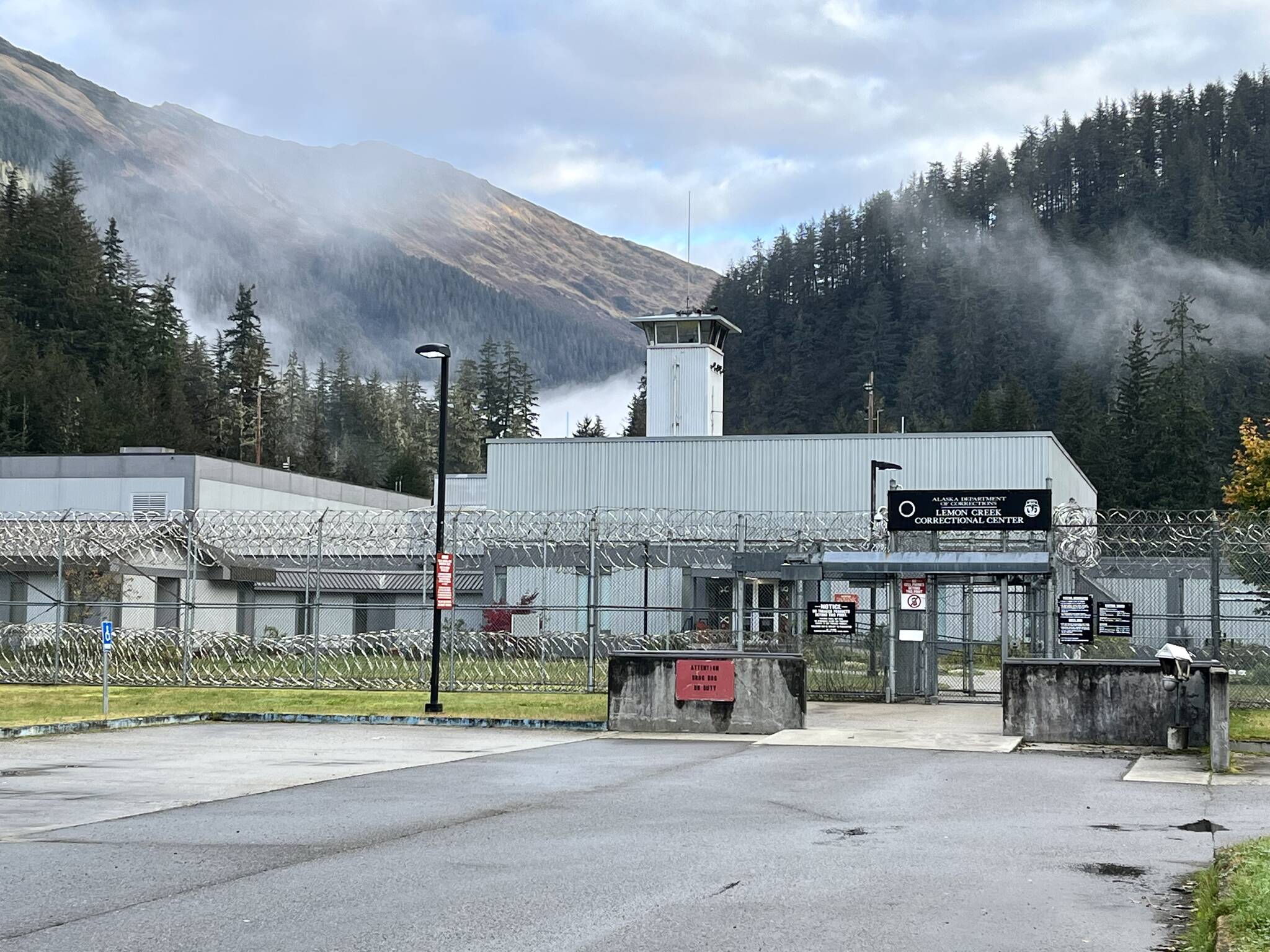About half of the people previously incarcerated at Lemon Creek Correctional Center and transferred to other in-state facilities were sentenced felons, according to an Alaska Department of Corrections spokesperson.
The Juneau prison, which is both an intake and long-term facility has a population of men and women including both sentenced felons and people awaiting arraignment, trial or sentencing, over the last several months transferred 45-50 people — about 20% of its population — to facilities located in Southcentral Alaska while repairs are underway at LCCC, according to DOC.
Betsy Holley, public information officer for DOC, told the Empire in an email the inmate population remaining at LCCC is largely male and that the transfers were solely due to repairs led by the Alaska Department of Transportation and Public Facilities and not an indicator of a planned closing.
Holley said that factors determining which facility inmates were transferred to included custody level and capacity at other facilities.
According to Megan Edge, prison project and communications director for the American Civil Liberties Union of Alaska, women previously incarcerated in Juneau have one destination as an option, while men may have been transferred to several locations.
“Hiland will only take the women and so with men it really depends on which institutions quite honestly have space,” Edge said. “Also, everybody sentenced has a classification, so they could be maximum, medium, minimum and that will kind of determine which facility they’ll end up in if they are male. Women have classification also but there’s only one women’s prison, so they’ll all end up going to Hiland. For male prisoners they could end up in Steward in Spring Creek which is maximum security, at Wildwood which is in Kenai which is medium/minimum or at Goose Creek which is also medium and that’s out in Point MacKenzie in the Matanuska-Susitna Valley.”
Per state statute and DOC policy, people released from state facilities are returned to the point of their arrest.
Edge said while DOC is legally obligated to return people to their place of arrest, where it gets tricky is if they have conditions of release that the community in which they were arrested cannot provide for, such as drug treatment, mental health, housing or sexual offender treatment. Furthermore, Edge said the other issue regarding inmates being transferred to different facilities within Alaska is an inmate’s rights to visitation.
“I would also say the other part that’s kind of alarming about it is for sentenced individuals, and this isn’t the same for pretrial necessarily, which is sad, but for sentenced individuals they have a right to rehabilitation and the state has said for years that part of the right to rehabilitation is your ability to have family visits,” Edge said. “So, if we’re moving a bunch of people from Southeast Alaska to Hiland Mountain here in South Central, what is their access to family visitation and the connections to their children? It makes things a lot more challenging. That’s also alarming and I’m not sure that DOC knows how to remedy it or if they even can.”
DOC previously told the Empire inmates are able to communicate with legal representation and family remotely and overwhelmingly favor that method.
• Contact reporter Jonson Kuhn at jonson.kuhn@juneauempire.com.

